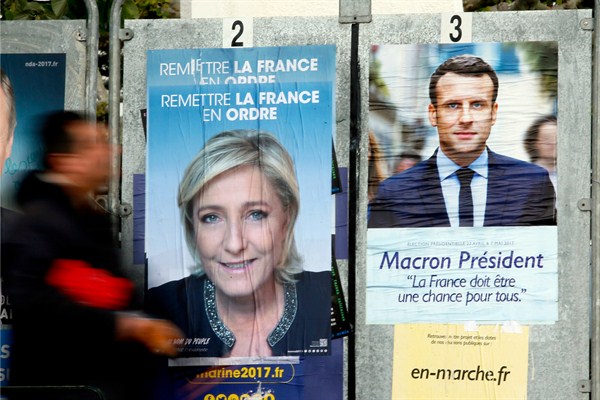PARIS—The widespread narrative surrounding the first-round results of France’s presidential election, which sent centrist independent Emmanuel Macron and far-right nationalist Marine Le Pen into the second-round runoff, goes something like this: Macron was the candidate most capable of barring Le Pen’s route to the presidency; his victory Sunday—and, in all likelihood, in the May 7 runoff—saved France from self-destruction and the European Union from a death blow. The populist tide has been turned back in Europe, and disaster averted.
While there is nothing actually wrong in this narrative, it obscures as much as it reveals. A closer look at the outcome of Sunday’s vote shows that France is an almost evenly divided country, essentially drawn and quartered by four diametrically opposed reform agendas. The four top contenders offered voters a stark and clear choice among the familiar options for addressing France’s longstanding challenges. They were separated by 4 percentage points, essentially splitting 85 percent of the vote. So while the choice offered the chance for a clarification, the outcome muddied the waters.
This means that, should Macron go on to win the second round as expected, his prospects for effectively implementing his program are far from certain. Though he is busy building a political formation from scratch for the parliamentary elections that will follow in June, there is no guarantee he will govern with a majority, further complicating his efforts. Much will therefore depend on his ability to form a workable coalition among France’s moderate center, from both left and right, a proposition that has historically been a losing one due to France’s political culture.

